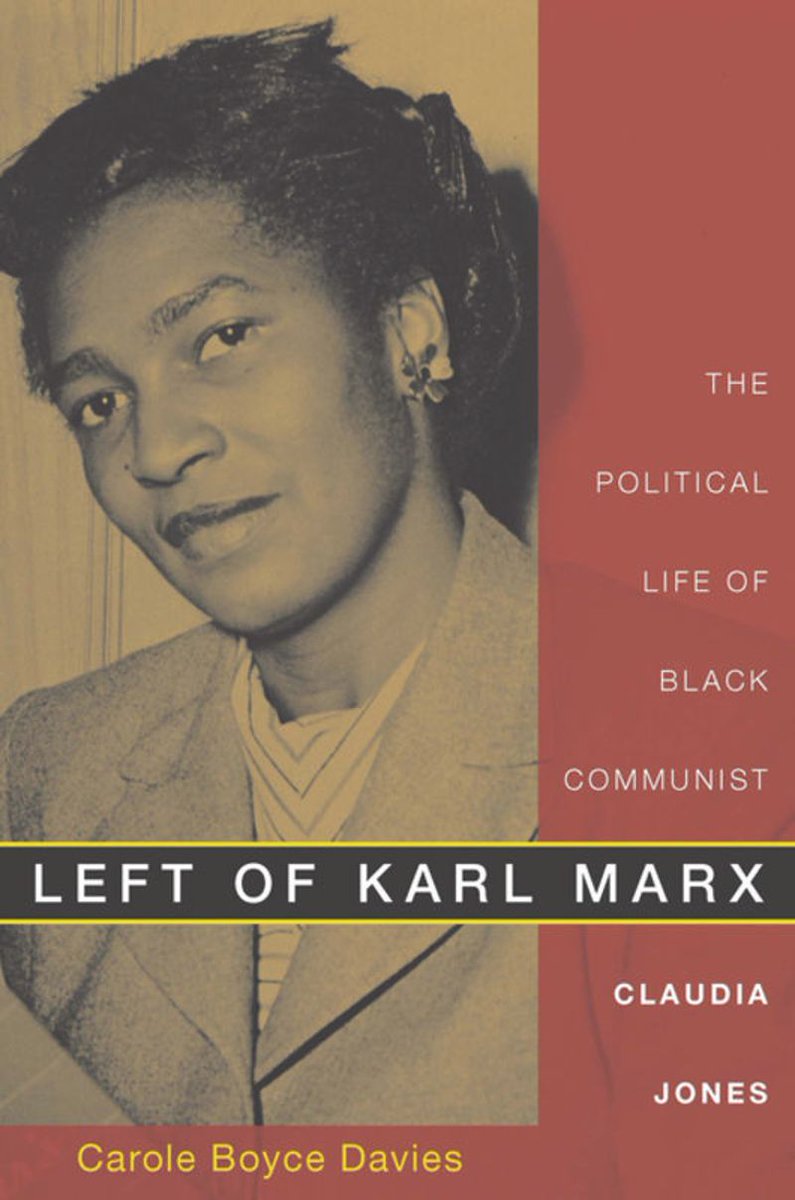
In honor of Claudia Jones' 108th birthday this week, for #CiteBlackWomenSunday, we are revisiting Carole Boyce Davies' biography of Claudia Jones, Left of Karl Marx: The Political Life of Black Communist Claudia Jones (2008). 

This iconic text locates Claudia Jones within and beyond the politics of the Communist Party, demonstrated in her commitment to including the domestic economic exploitation of Black women as part of a larger fight against imperialism and colonialism.
According to Davies, "For Claudia Jones, imperialism did not reside solely in its economic-based and international manifestations but in the way it manifested at the domestic and local levels in which black women were the most vulnerable."
"Claudia's anti-imperialist politics linked local struggles of black people and women against racism and sexist oppression to international struggles against colonialism and imperialism. Thus she saw these as interconnected in a dynamic set of interactions."
Davies, C.B. (2008). Left of Karl Marx: The Political Life of Black Communist Claudia Jones. Duke University Press.
• • •
Missing some Tweet in this thread? You can try to
force a refresh









